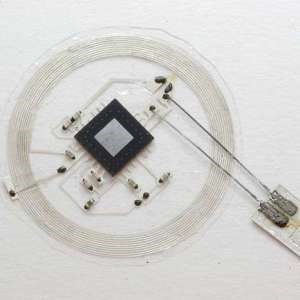
Working with rats, researchers say they may have found a more efficient way to measure pressure and temperature inside the skull – using a tiny, dissolvable sensor.
More research needed
The implant would transmit information wirelessly to physicians during surgery or after a brain surgery. Such a device might also have potential for use in other organs of the body, a study co-author said.
"Anytime you do surgery, you want information from the organ you're working on," said neurosurgeon Dr Rory Murphy, chief neurosurgery resident at Washington University in St. Louis. "We could put these sensors in next to the organs or the vessels we're trying to fix and get information from them for a period of time."
Read: 10 magic brain tricks
Much more research is needed, however, before the silicon sensor could even be tested in humans.
Monitoring so-called intracranial pressure is critical after trauma or during brain surgery because the skull prevents the brain from expanding. Tracking brain temperature is important, too, because chilling the brain is a tool that neurosurgeons use to boost healing, experts say.
Currently, neurosurgeons use several types of devices to monitor the brain, including a plastic tube placed into the spinal fluid, explained Dr Donald Whiting, of Drexel University College of Medicine in Philadelphia. Whiting, a professor of neurosurgery, wasn't involved in the new study.
Read: fascinating brain facts
But, Murphy said, these current devices sometimes promote an immune reaction. In addition, the wires and cables they require interfere with patient care, and the monitors eventually require surgical removal, Murphy added.
Works like a thermostat
Standard hardware also poses a risk for infection, the study authors explained in background notes.
Whiting said development of an implantable device that would dissolve on its own would be a major improvement. It would also help to have a device that transmits data electronically and works like a thermostat, allowing physicians to adjust temperature and pressure in the brain, he said.
In the new study, published on 18 January in Nature, researchers tested a sensor the size of a pencil tip that's connected to a penny-sized transmitter, Murphy said. The study authors reported that the new device, at least in rats, works about as well as existing devices at measuring pressure and temperature.
Read: Brain surgery may ease severe OCD
According to Murphy, the device wouldn't necessarily need to be bigger in humans. The material dissolves over time.
The sensor's cost and the potential for side effects aren't known yet. And, of course, no one knows if it will work in humans.
"This is just a first step in an animal model," Whiting said. "It still has to be tested in humans, who are much more complex. A lot of things don't necessarily translate."
Researchers are looking for funding from the U.S. Department of Defence, which studies brain injury, to launch the next stages of laboratory testing, Murphy said. That phase of research could take three to four years before tests in humans could begin, he said.
Read more:
Brain stimulation treats depression




 Publications
Publications
 Partners
Partners











